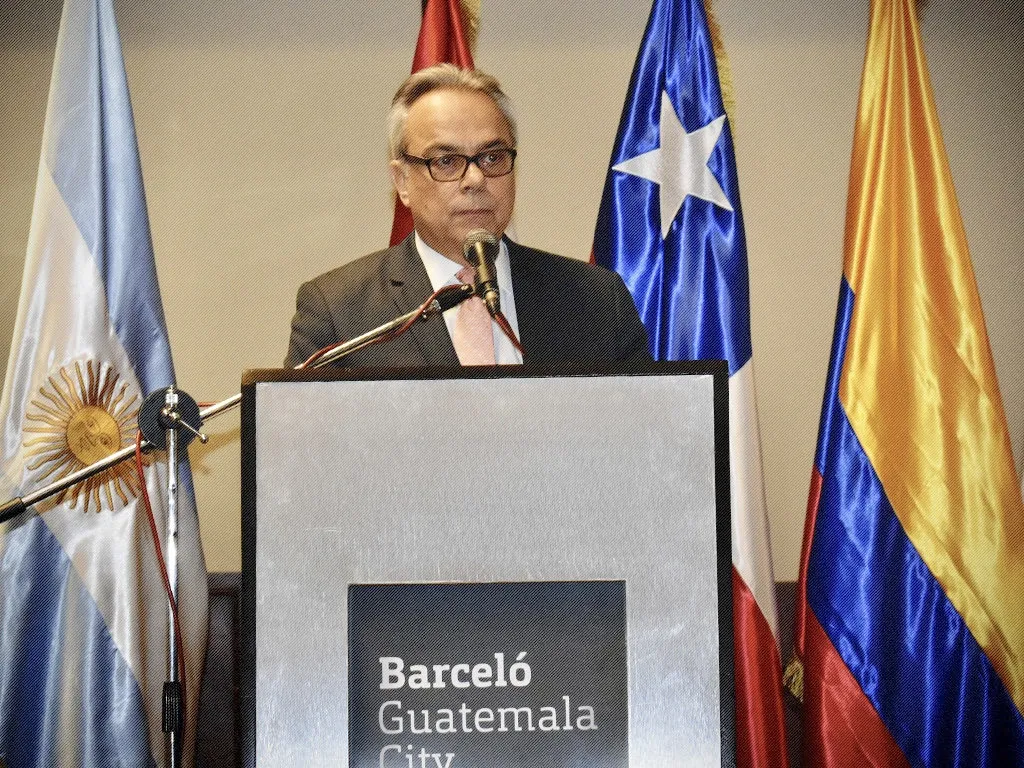“The fight against corruption and impunity in Guatemala, together we did it!”

On August 20th and 21st, two weeks after the end of its term, the International Commission Against Impunity in Guatemala (CICIG) organized the International Seminar “The fight against corruption and impunity in Guatemala, together we did it!”.
The event counted with the participation of more than 600 people, including ambassadors, representatives of the United Nations, members of various civil society organizations and more than 30 experts. The CICIG presented the extensive work it has done during the last 12 years to contribute to the fight against corruption and impunity in Guatemala. The Director for Latin America and the Caribbean of International IDEA, Dr. Daniel Zovatto, invited by the head of the CICIG Iván Velásquez, presented a keynote conference about the state of democracy and its current challenges in the region.
Dr. Zovatto expressed his concern regarding the decision of the current government, of President Morales, not to renew the CICIG’s mandate. He also showed worry towards the disinterested position of the newly elected President, Alejandro Giammattei, who does not believe in the organism’s relevance to face corruption in the country. The Regional Director of IDEA stressed that the forced departure of the CICIG constitutes an error that risks producing strong setbacks in the fight against corruption and impunity, not only in the country but throughout the continent.
Faced with this threat, Dr. Zovatto identified and highlighted several actions that are fundamental. First, to protect the legacy that is left by the CICIG after more than a decade of work. Second, to urge the new authorities – who will assume in January 2020– and the Public Ministry, to work with a high level of commitment and professionalism in the fight against corruption and impunity. Third, to facilitate the work of the Special Prosecutor’s Office against Impunity (FECI) to continue with the ongoing investigations. Finally, to strengthen citizen mobilization to stimulate greater accountability by civil society to various government entities.
In the keynote conference, Dr. Zovatto analyzed the current situation of democracies in Latin America and reflected upon the main challenges of the political and electoral agenda of the coming years. Considering the significant advances that have been achieved in the last 40 years, he did not fail to mention the large deficits in the quality of South American democracies and the significant setbacks that countries like Nicaragua and Venezuela have seen.
He made special reference to corruption as one of the main challenges in Latin America, the region that remains within the worst evaluated in the world. In this area, Guatemala has a particularly critical situation, maintaining the highest levels of impunity and corruption with Nicaragua, Haiti and Venezuela.
The participation of IDEA in the event highlights the urgent need for a renewed agenda for Latin America, that sets the pillars for a new-generation democracy, aimed at improving the quality of politics and its institutions, as well as working towards the 2030 Agenda for Sustainable Development. The CICIG has been a key organism towards these objectives and has become a reference worldwide in the areas that most affect the countries of the region. During the seminar, more than 200 organizations and social groups expressed their support for the organization in an open letter that urged the international community to protect its legacy and continue to support the fight against impunity.




